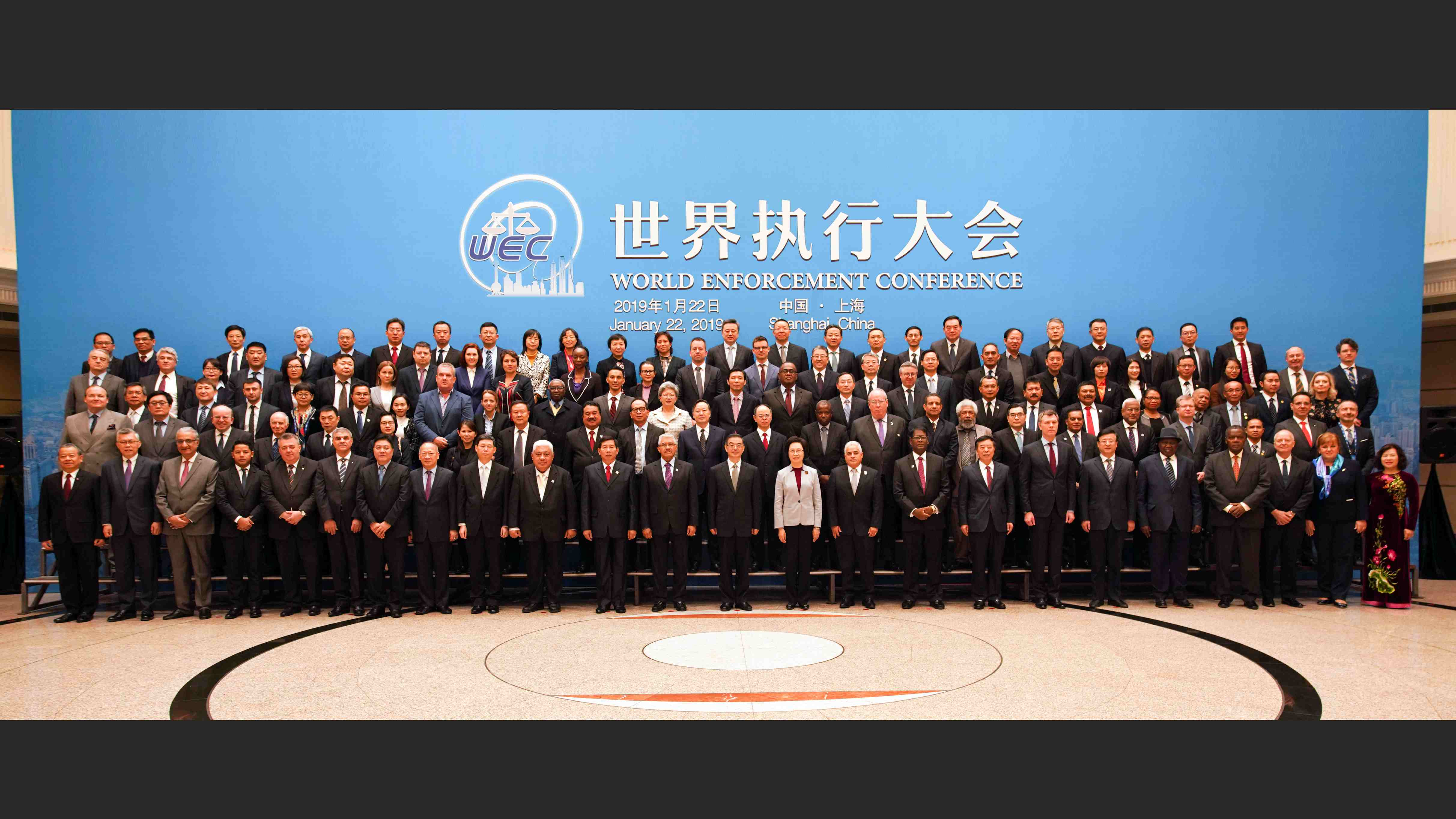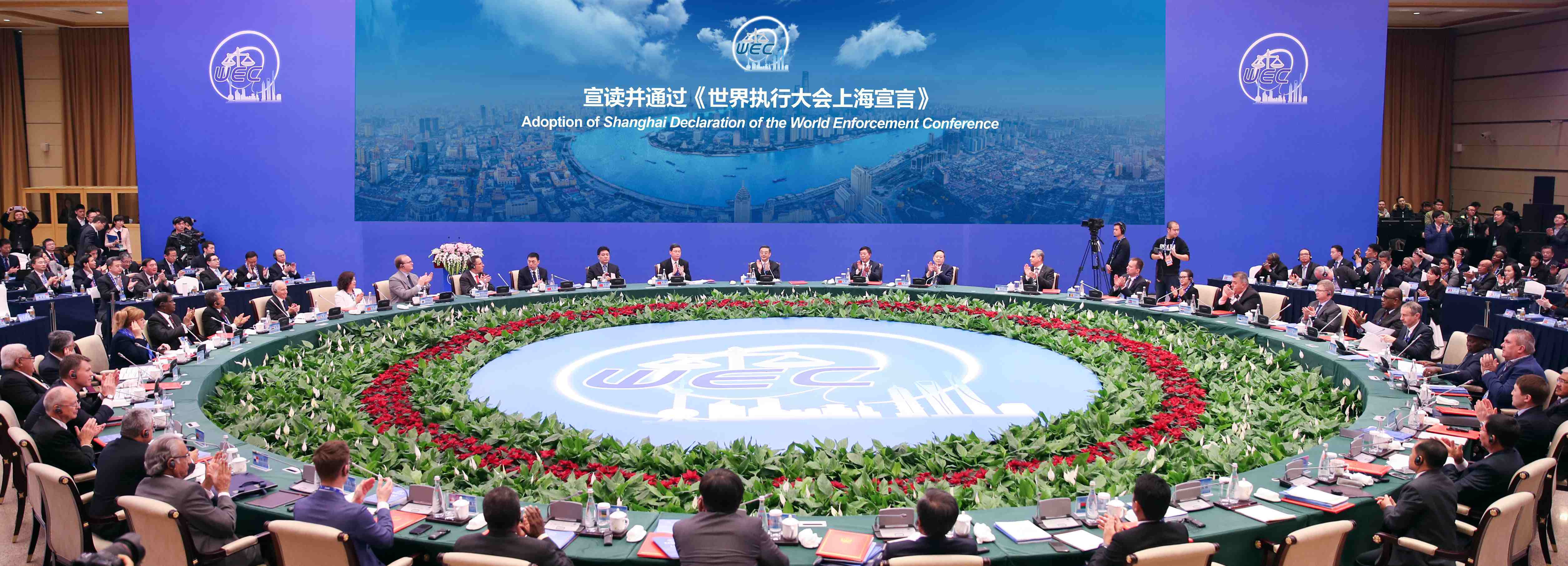
Technology
12:08, 23-Jan-2019
China shares experiences in implementing information technology to judicial enforcement
Updated
14:49, 23-Jan-2019
By Tang Bo
02:29

The World Enforcement Conference was held Tuesday in Shanghai with representatives of judicial authorities from over 30 countries and international organizations in attendance.
They gathered to discuss new developments in judicial enforcement, including applications of information technology (IT).
Zhou Qiang, chief justice of China's Supreme People's Court said China should make full use of emerging information technologies like cloud computing, artificial intelligence, and blockchain to improve the information level of enforcement works.
China's Supreme People's Court has built a surveillance network which enables legal officers to easily find out all property forms of people subject to enforcement. It established links with over 3,900 domestic financial institutions.
Thanks to the surveillance network, over 400 billion yuan (roughly 59 billion U.S. dollars) were tied up by courts across the country for over 60 million legal cases by the end of 2018.

All participating legal officers adopted the Shanghai Declaration of the World Enforcement Conference. /CGTN Photo
All participating legal officers adopted the Shanghai Declaration of the World Enforcement Conference. /CGTN Photo
China's efforts in implementing IT for its enforcement work have been praised by many participants.
Muhammad Hatta Ali, chief justice of Indonesia's Supreme Court, said the implementation of IT is one of the answers to many problems faced in enforcement work as the world is moving to a digital age.
Ali also stressed that an event like this allows experiences and lessons learned to be exchanged among different jurisdictions, which in turn provides reference for other jurisdictions to implement reform in a much more effective manner.
Nalin Perera, chief justice of Supreme Court of Sri Lanka, said the implementation of IT will shape the way enforcement is carried out in the future. He believes how information is managed and used to ensure people are complying with court decisions will determine how enforcement can be done and what supportive institutional settings would be in place.
This is China's first time to hold an international meeting on judicial enforcement. All participating legal officers adopted the Shanghai Declaration of the World Enforcement Conference, highlighting each country's new ideas in enforcement modernization development.

SITEMAP
Copyright © 2018 CGTN. Beijing ICP prepared NO.16065310-3
Copyright © 2018 CGTN. Beijing ICP prepared NO.16065310-3